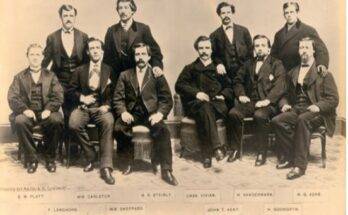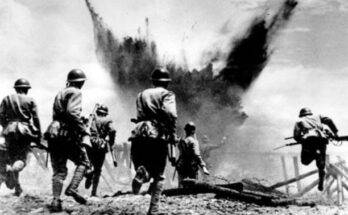Pre-modern
Numerous world civilizations have taught about world history instead of national history. However, early versions of world history were not genuinely global and were restricted to the areas the historian was familiar with.
The dynasty cycle described by Sima Qian around 100 BC served as the foundation for ancient Chinese history, including that of China and the people who lived in its immediate surroundings in East Asia. The Mandate of Heaven serves as the basis for Sima Qian’s model. When they unify China, rulers ascend, but when they become corrupt, they are removed from power. Every new dynasty starts powerful and honorable, but the Heavenly mandate is passed on to a new monarch as they deteriorate. A new dynasty’s moral standing is measured by its ability to win the respect of China and the surrounding barbarians. Even if the dynasty cycle is no longer employed in current Chinese history, Sima Qian’s paradigm has dominated study for 2000 years.
As the creator of Greek historiography in ancient Greece, Herodotus (5th century BC) gives a study of the traditions, geography, and history of Mediterranean peoples, notably the Egyptians. Herodotus’ contemporaries, Thucydides and Polybius, rejected Herodotus’ all-encompassing view of history and presented a more specialized, narrowly focused monograph that concentrated on the 27-year conflict between Athens and Sparta rather than on massive empires throughout the millennia. In Rome, Livy’s (59 BC – 17 AD) extensive, patriotic history of Rome came close to Herodotean inclusivity; Polybius (c. 200–c. 118 BC) aimed to combine the logical rigor of Thucydides with the breadth of Herodotus.
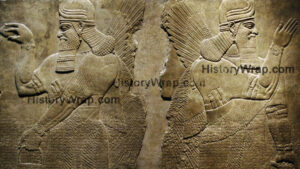
Rashid al-Din Fadhl-Allah Haman, a Persian physician of Jewish descent, was a polymathic author, historian, and author of the massive Islamic history known as the Jami al-Tawarikh. This work is sometimes seen as a turning point in international historiography and a crucial source on the Ilkhanids (13th and 14th centuries).
The most direct access to material about the late Mongol era is made possible by his encyclopedic knowledge of a wide variety of civilizations, including those of China, Persia, the Arabic-speaking countries, Europe, and the Steppes of Central Eurasia. His accounts also show how the Mongol Empire’s concentration on commerce led to an environment of intellectual ferment, religious and cultural interaction, and the transmission of various ideas from the East to the West and vice versa.
Ibn Khaldun, a Muslim philosopher who lived from 1332 to 1409, defied convention and provided a model of historical development in his explanation of scientific history methodology, Muqaddimah. Ibn Khaldun concentrated on the causes of civilization’s growth and collapse, stating that these factors should be looked for in society’s economic and social structure. In the Muslim world, his work was mostly disregarded.
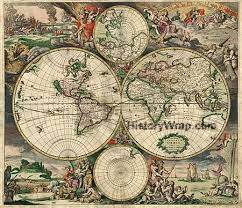
Numerous world civilizations have taught about world history instead of national history. However, early versions of world history were not genuinely global and were restricted to the areas the historian was familiar with.
The dynasty cycle described by Sima Qian around 100 BC served as the foundation for ancient Chinese history, including that of China and the people who lived in its immediate surroundings in East Asia. The Mandate of Heaven serves as the basis for Sima Qian’s model. When they unify China, rulers ascend, but when they become corrupt, they are removed from power. Every new dynasty starts off powerful and honorable, but the Heavenly mandate is passed on to a new monarch as they deteriorate. A new dynasty’s moral standing is measured by its ability to win the respect of China and the surrounding barbarians. Even if the dynasty cycle is no longer employed in current Chinese history, Sima Qian’s paradigm has dominated study for 2000 years.
As the creator of Greek historiography in ancient Greece, Herodotus (5th century BC) gives a study of the traditions, geography, and history of Mediterranean peoples, notably the Egyptians. Herodotus’ contemporaries, Thucydides and Polybius, rejected Herodotus’ all-encompassing view of history and presented a more specialized, narrowly focused monograph that concentrated on the 27-year conflict between Athens and Sparta rather than on massive empires throughout the millennia. In Rome, Livy’s (59 BC – 17 AD) extensive, patriotic history of Rome came close to Herodotean inclusivity; Polybius (c. 200–c. 118 BC) aimed to combine the logical rigor of Thucydides with the breadth of Herodotus.
Rashid al-Din Fadhl-Allah Haman, a Persian physician of Jewish descent, was a polymathic author, historian, and author of the massive Islamic history known as the Jami al-Tawarikh. This work is sometimes seen as a turning point in international historiography and a crucial source on the Ilkhanids (13th and 14th centuries).
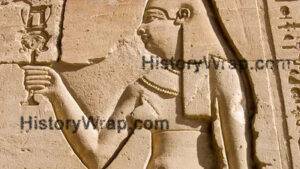
The most direct access to material about the late Mongol era is made possible by his encyclopedic knowledge of a wide variety of civilizations, including those of China, Persia, the Arabic-speaking countries, Europe, and the Steppes of Central Eurasia. His accounts also show how the Mongol Empire’s concentration on commerce led to an environment of intellectual ferment, religious and cultural interaction, and the transmission of various ideas from the East to the West and vice versa.
Ibn Khaldun, a Muslim philosopher who lived from 1332 to 1409, defied convention and provided a model of historical development in his explanation of scientific history methodology, Muqaddimah. Ibn Khaldun concentrated on the causes of civilization’s growth and collapse, stating that these factors should be looked for in society’s economic and social structure. The Muslim world mainly disregarded his efforts.
Early Modern Era
European history was written about governments or nations throughout the Renaissance. The Romantic and Enlightenment periods saw changes in how history was studied. Instead of retelling the history of specific eras that he thought were significant, Voltaire explained the history of those eras. History evolved into a separate academic field. History was now the only title, not Philosophia Historiae (Historia). In the 18th century, Voltaire tried to modernize the study of global history. First, Voltaire concluded that conventional historical research was incomplete. One of the most influential organizations in his era, the Christian Church, had provided a framework for analyzing history. Instead, Voltaire chose to concentrate on economics, politics, and culture in his works The Age of Louis XIV (1751) and History of Charles XII (1731). His contemporaries mostly ignored these historical facets, which would later each become a distinct period of world history. Voltaire believed that the most critical aspect of documenting global history was the telling of the truth. Voltaire liberated himself from the influence of nationalism and religion when he chronicled history since they both only served to diminish the value of objective reality.
In his book Scienza Nuova Seconda (The New Science), Giambattista Vico (1668–1744) of Italy made the case that history is the product of human intention and action. He believed that humanity is a historical figure and that human nature evolves with time. The entirety of each period, including art, religion, philosophy, politics, and economy, should be considered (a point developed later by Oswald Spengler). Vico demonstrated that myth, poetry, and art are gateways to understanding a culture’s fundamental essence. Vico established a theory of historical evolution in which major civilizations, like Rome, go through cycles of expansion and contraction. His ideas fell out of favor during the Enlightenment, but around 1800 they impacted Romantic historians.
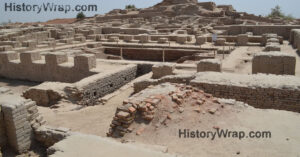
German philosopher G. W. F. Hegel, who considered the modern Prussian state the latest (though sometimes confused with the highest) stage of global development, laid a robust theoretical framework for world history.
G.W.F. Hegel created three lenses to examine global history, in his opinion. Hegel saw records created within a historical time, such as diaries and contracts, as a component of Original History. These records were created by someone who was a part of that culture, making them conduits for important information but also constrained in their contextual understanding. Modern historians classify documents relevant to Hegel’s Original History as primary sources.
Hegel’s second lens, reflective history, refers to writings that have some time separation from the event under discussion. Hegel said that applying the author’s cultural values and viewpoints to the historical event constrained this lens. Later, anthropologist Franz Boa codified this critique of reflective history, and Alain Locke established the term “cultural relativism” to describe it. Hegel believed that these two perspectives had certain flaws.
Hegel referred to the perspective he recommended using to examine global history as Philosophical History. This perspective on history requires an unbiased examination of historical occurrences, civilizations, and eras. This way, the historian may draw the overarching topic from their research. This lens is distinct from the others since it approaches history analytically and is free of cultural prejudices. Since world history is a large subject, it is best to concentrate on drawing out the most critical details from particular periods. The study of history in the early modern era and the contemporary era was impacted by this third lens, just as it was by Hegel’s definitions of the other two.
Adam Ferguson was another early modern historian. An Essay on the History of Civil Society, Ferguson’s significant contribution to the study of global history (1767). Ferguson said that the history of the globe included two different types of history. One was natural history, which included the elements of our world that God created. Social history was the other, and it was more revolutionary. In his view, social history represents the advancements people achieved in realizing God’s purpose for humanity. He argued that while development may be attained via people chasing financial gain, we would never arrive at the ideal society. He also postulated that total devotion to financial success might force individuals to abandon morals, which would cause institutions to collapse, similar to what occurred in Rome. Ferguson regarded global history as humanity’s attempt to create a perfect culture via this prism.
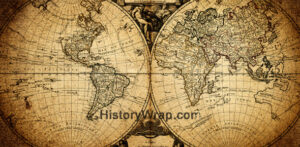
During the Age of Enlightenment, Henry Home, Lord Kames, a philosopher, contributed to studying global history. The home defined the four stages of human history he saw in his main historical book, Sketches on the History of Man. Small hunter-gatherer communities made constituted the earliest and most rudimentary stage. When humans started domesticating animals, they entered the second stage and started to form bigger groups. The growth of agriculture was the third stage. With the advent of this new technology, large groups of people could trade and cooperate at greater levels. Rules and social duties had to be created to preserve order when people began assembling in agricultural communities. Humans moved into market towns and seaports, the final and last stage, where agriculture was not the primary industry. Instead, a civilization is sparked by trade and various types of work. Homes impacted his predecessors by outlining the phases of human history. He also contributed to the growth of other fields of study, including anthropology and sociology.
According to the Marxist theory of historical materialism, the interactions individuals have with one another to meet their basic wants, such as eating, clothing, and housing themselves and their families, essentially define the material conditions at any given moment.
Marx and Engels asserted that these material circumstances in Western Europe evolved through five distinct phases overall. The hypothesis categorizes the world’s history into the following periods: Slave society, feudalism, capitalism, socialism, and primitive communism.
Regna Darnell and Frederic Gleach contend that the Marxian view of history was the solely approved orthodoxy in the Soviet Union, which inhibited investigation into alternative historical schools of thought.
Marxism, according to supporters of his beliefs, was corrupted by Stalin.


